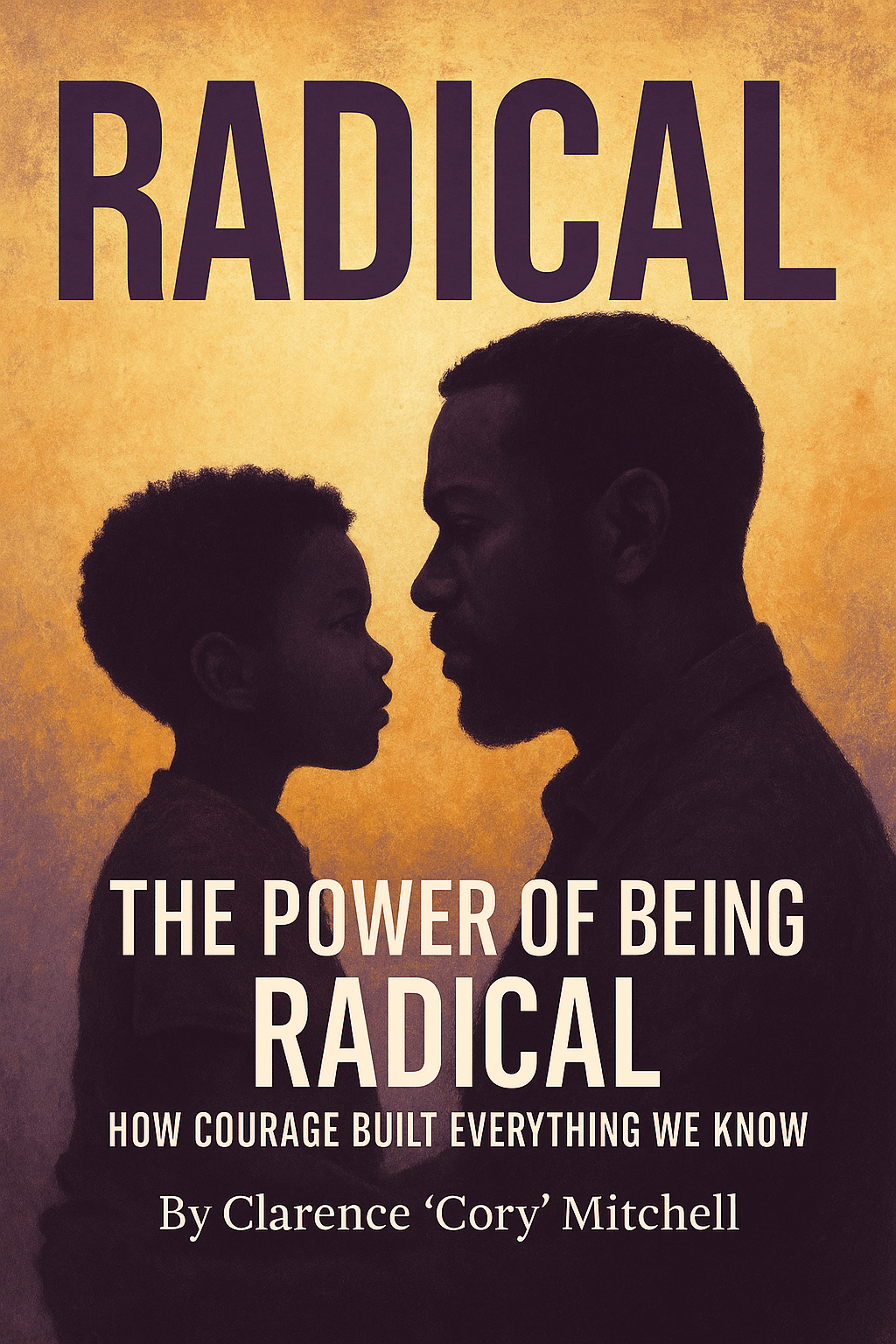
The Power of Being Radical: How Courage Built Everything We Know
Share
A personal letter about courage, fairness, and the radical spirit that built our everyday lives.
Editor’s Note — Letters from the Table
At every Sunday dinner, there’s a moment when the conversation turns real — when stories, memories, and truths are passed around the table as freely as the food. “Letters from the Table” is our space for those moments — a place to speak from the heart, share what matters, and remind each other that community begins with conversation.
I was talking to a friend once, and he said the words “radical left.” But he said it with anger and hatred in his voice.
And I had to stop and ask him: What’s so radical about wanting something better for people?
What’s radical about believing every American should have healthcare — not “free,” but something we all pay into through our taxes instead of feeding a dozen insurance companies?
What’s radical about wanting the freedom to live my life and pursue happiness? What’s radical about wanting my son to grow up in a world where he’s judged by his heart, not his skin color?
Because when I was young, I was pulled over — not for speeding, not for drinking, not for breaking a law. I was pulled over because my skin was Black.
I’ve been frisked, searched, and sat on a curb for being in the wrong part of town after sundown.
Women’s rights were once considered radical.
Before Rosa Parks made history in 1955, there were other women whose courage paved the way.
In 1854, Elizabeth Jennings Graham refused to give up her seat on a segregated streetcar in New York City. She was thrown off that car — but she fought back and won her case in the New York State Supreme Court, forcing desegregation nearly a century before the Civil Rights Movement.
Then, in March 1955, Claudette Colvin, a 15-year-old in Montgomery, Alabama, refused to surrender her seat on a segregated bus — nine months before Rosa Parks. She was arrested, humiliated, and yet became one of the sparks that lit the fire for change.
And then came Rosa Parks, in December 1955, whose quiet strength ignited a movement that changed America forever.
Each of these women — Elizabeth Jennings Graham, Claudette Colvin, and Rosa Parks — were called radical in their time. But their courage redefined justice and equality for generations.
It was once considered radical for people who looked like me to walk in a public park that had a “Whites Only” sign — even if that park was the only park for miles. It was considered radical to want to drink from a water fountain that said “White Only,” when that was the only fountain in reach for the next ten miles.
It was radical to think I should be able to buy a shirt from a store that didn’t want me inside. Radical to believe I could live in a certain neighborhood. Radical to believe I could vote.
There was a time when equality itself was the most radical idea in the room. And every step toward justice was branded as rebellion.
But progress was built on those radical moments — on people who said enough is enough.
Everything we use today was once a radical idea.
When someone imagined a phone that could speak across the world with no wires, people called him crazy. When someone dared to build a machine that moved without a horse, they laughed. When someone looked up at the sky and said “Man can fly,” they said he’d lost his mind.
To say the world was round was radical. To pray in secret caves as a Christian was radical. To own a business, to buy a home, to trust yourself enough to lead instead of follow — those are all radical acts.
Because being radical has never been about rebellion. It’s about vision, faith, and courage before proof.
Everything that built our country — every dream, every breakthrough, every freedom — began as a radical thought. Radical is what built our excellence.
We’re all taxpayers. We all deserve to live equally as taxpayers.
My son’s school should be no different than any other school in this nation. Every child should have access to the same education, the same tools, and the same opportunity to succeed — not based on where they live, but on how high they can rise.
That’s what makes America great — not division, but education, excellence, and equality.
A radical mind doesn’t tear the country down. A radical mind builds it up. It dreams, invents, and lifts others higher.
Maybe the people who love to call others “radical” need to be a little more radical themselves.
Because my kind of radical isn’t about destruction — it’s about growth and humanity. It’s about sharing humanity with each other. It’s about leaving this world in a better place than I found it.
You call me radical because I believe people deserve healthcare. But you’ll call someone “patriotic” for walking into a park with an AR-15 just to prove a point.
Make it make sense.
All I want is for my son to live. To be happy. To grow up and not have to learn how to survive being Black. I want him to be 8 years old — just 8 — and to live like it.
My father taught me how to survive my Blackness. That’s the conversation too many of us still have to have.
So if believing in fairness, love, equality, and a better world for our children makes me radical… Then yes — I’m radical.
👉 Looking for more great recipes, BBQ tips, and real Sunday Dinner stories?
Explore UCBBQ Sunday Dinner